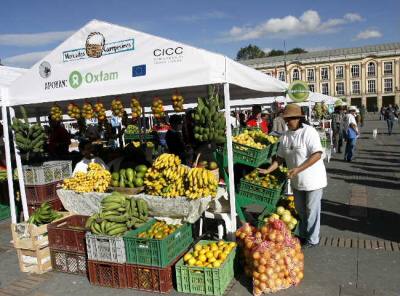EspañolLudwig Von Mises demonstrated in his seminal book Human Action that in economics one can expect certain results given certain actions or decisions. They may not always be the same; their magnitude may vary from case to case, but that depends on specific circumstances. Therefore, the main operating principle is not refuted. These principles shape what Mises called praxeology.

A perfect example of this phenomena is found in protectionism. Protectionism does not generate a single benefit for the societies that embrace it. On the contrary, it brings about negative results that have different magnitudes and expressions, according to the the specific circumstances of the society where it is implemented.
In Latin America, there are extreme cases, such as Venezuela; a country where excessive state intervention in the economy and the violation of property rights has led to a situation bordering on totalitarianism. The ruling party doesn’t just rigidly control the economy, they also systematically persecute their political opposition. There is a growing attempt to control all aspects of individual citizens’ lives.
There are other similar cases. Last week, Nicaragua announced its decision to allow the free importation of corn due to its high price and the increased cost of other goods. This, in turn, is a consequence of the shortages generated by previous trade-restricting policies implemented by the current government of Daniel Ortega. This situation closely resembles, both in style and ideology, the totalitarianism of Venezuela.
What is surprising is that, despite these regional examples and the availability of theoretical knowledge about the effects of cutting a country’s foreign trade, Colombia is still not a fully open economy. In fact, the country’s trade policies are still very much influenced and controlled by a few powerful elites.
Last week, there were two news pieces on this subject in Colombia that created an atmosphere of timid optimism — or light pessimism, depending on one’s perspective. On the one hand, the good news is Colombia’s membership in the Pacific Alliance was approved by Congress. On the other, however, this same Congress decided to dump the free trade agreement with South Korea, supposedly to carry out further studies about its impact.
The fact that the Korea trade agreement wasn’t signed is particularly surprising, given that this happened the same week that the quarterly economic growth figures were published. Colombia’s growth in this period was 6.4 percent; the second highest in the world.
There are, however, two factors at work here that should make us cautious about being too optimistic about this figure. First, these numbers are unusual, and this level of growth is not likely to recur or sustain itself over time, as explained by the Colombian finance minister, Mauricio Cárdenas. Second, construction is one of the key sectors driving growth, and this may be due to the dangerous, artificial stimulus generated by the government by subsidizing interest rates in the housing market.
Despite these clouds on the horizon, the truth is that two sectors, agriculture and industry, have shown growth. It must also be noted that this growth occurred despite free trade with the United States, Canada, Chile, and the European Union, which critics always said would annihilate these two sectors. This result alone should delegitimize widespread fears about foreign trade agreements.
Given the regional examples, the available theoretical knowledge, and the specific circumstances in Colombia, it is outrageous that free trade continues to be postponed to soothe the fears of privileged industries. A clear example is that of Carlos Mattos, one of the richest men in the country, who on national radio celebrated the end of the Korea free trade agreement, which he considered a threat to his interests. Just like that, with no attempt to hide it, he openly discussed how a possible free trade agreement with Korea would harm his business interests.
Colombia is changing gradually. But it is necessary that society, intellectuals, and the government recognize, once and for all, that the good news has not been the result of deliberate action on the part of the president or his ministers. On the contrary, they are a consequence of the gradual and timid implementation of economic liberalization policies, both in our domestic and foreign policy. There is still much to be done. Now is not the time to give into fear, let alone to the interests of the few at the expense of the many.
 Versión Español
Versión Español












